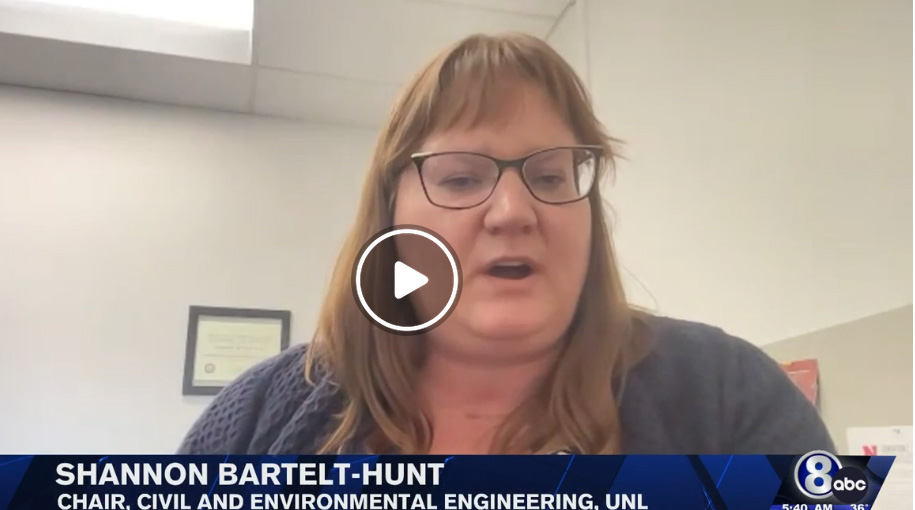
by Nathan Greve, KLKN TV
https://www.klkntv.com/unl-offers-free-water-testing-opportunity-in-may/
LINCOLN, Neb. (KLKN) – The University of Nebraska-Lincoln’s water quality testing kits are free, quick and easy to use, and they can clue you in on some health concerns.
Being in an agriculture-heavy state, nitrate, nitrite, and phosphate are all key parts of the ag industry, as they’re important for growing plants.
“But if we apply too much, or if it rains right after we apply them, they could wash off into water”, says Shannon Bartelt-Hunt. Hunt is chair of the civil and environmental engineering department at UNL, and she is administering this program.
It isn’t ideal for that runoff to enter our drinking water. They can contribute to excess algae growth and the growth of large aquatic plants. Nitrates are also responsible for a number of health concerns if they’re present in high enough numbers.
“Nitrate has a health-based limit of 10 milligrams per liter," said Bartelt-Hunt. “We’re really interested in measuring nitrate and seeing if the water quality that we measure is above or below that limit that’s set by EPA.”
There are many ways to test. If you have a well, you can test the water that comes right out of your tap, assuming it’s not filtered. If it is, you’ll need to access the water from an unfiltered source. Alternatively, you can test surface water. This is a good option for people who are on a city water system.
“It could be a lake, or a stream, or a pond. You can do the test, and you can report back the data, and it will come back to our data website," Bartelt-Hunt said.
Apart from a cluster of tests performed in Scotts Bluff County, the vast majority of tests have been completed in roughly the eastern third of the state.
Bartelt-Hunt said the plan is to continue to grow, “across the state." She added, “Anywhere that people are interested in participating, we’d be happy to have them request some kits.”
This round of testing runs May 1 to May 31, and you can request kits until around halfway through the month. If you miss out, it will happen again in September. The Water Quality + Citizen Science webpage is the ultimate resource, with links to the registry page, how-to videos, and the map showing the test results thus far: https://engineering.unl.edu/cee/water-quality-citizen-science/